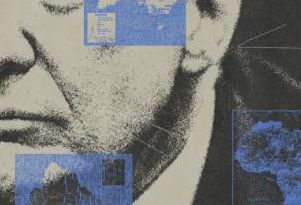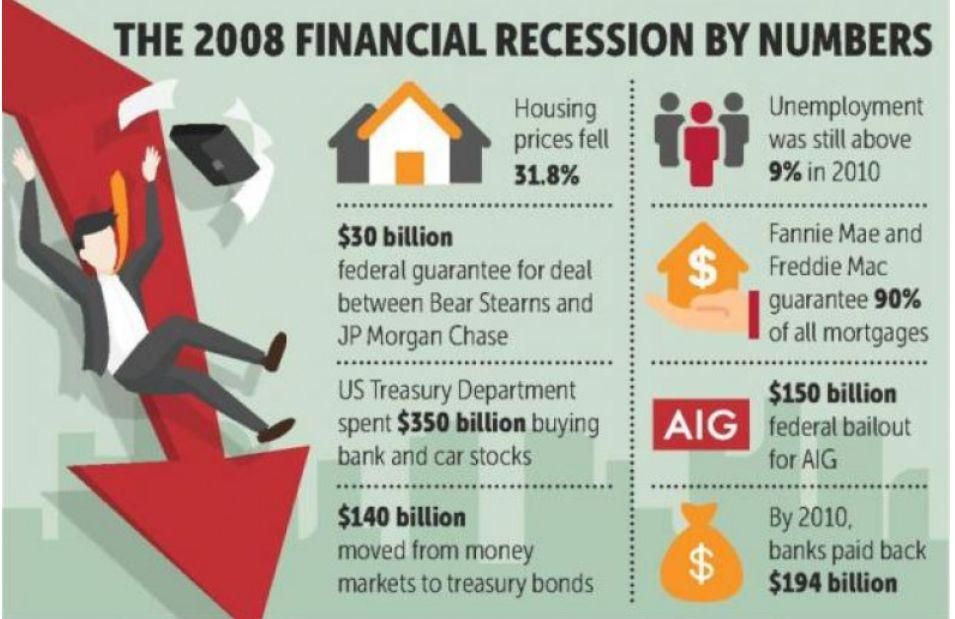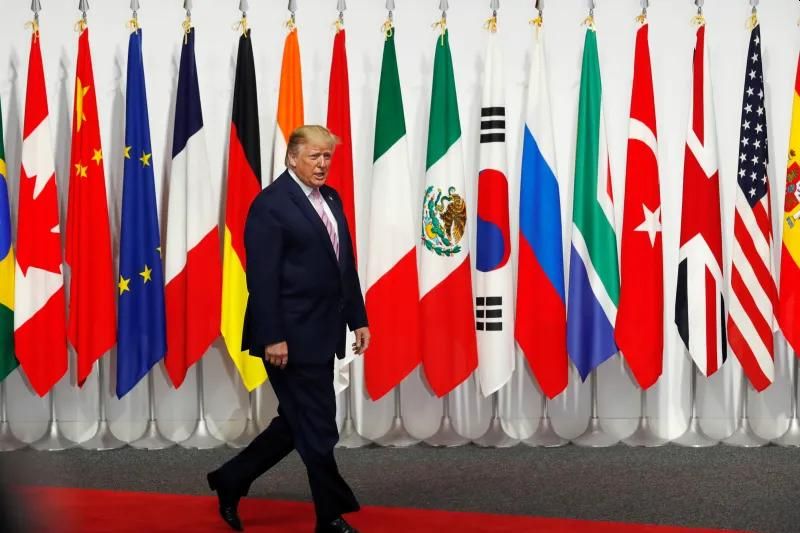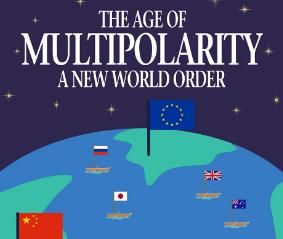By Eric Vandenbroeck and co-workers
Rise of the Nonaligned Countries
The global South has
been a net winner from the shifts in global power over the last two decades.
The growing influence of emerging economies, the rise of China as a great
power, tensions between the United States and its European allies, and
increasing great-power competition have given these countries new leverage in
global affairs. They have taken advantage of these shifts by building new
coalitions, such as BRICS (whose first members were Brazil, Russia, India,
China, and South Africa); strengthening regional alliances, such as the African
Union; and pursuing a more assertive agenda at the UN General Assembly. From
championing the Paris agreement on climate change to taking Israel to the
International Court of Justice, the global South—the broad grouping of largely
postcolonial countries in Africa, Asia, Latin America, and the Middle East—has
shown a greater willingness to challenge Western dominance and redefine the
rules of the global order.
An “America first”
foreign policy would seem to put those gains at risk. During his presidential
campaign, Donald Trump promised to hit developing countries where it
hurts most: raising tariffs that will throttle exporters in developing
countries; normalizing the mass deportation of migrants, whose remittances are
essential for the economies of many countries in the global South; and
withdrawing from global environmental agreements that provide crucial support
to those people disproportionately affected by the climate crisis. His proposed
economic policies will probably lead to inflation at home, with devastating
knock-on effects for developing countries as interest rates rise globally and
credit becomes more expensive for economies already burdened by debt. His
commitment to targeting China may make it harder for Beijing to continue
serving as an alternative market and source of investment for much of the
world.
But even if Trump
follows through on his promises (and he may not), the bigger story for the
global South should be one of opportunity. Trump has exhibited little interest
in, and often contempt for, the non-Western world, but his return could
paradoxically help countries in the global South advance their own interests.
His hostility to certain international norms will push these countries to work
together more effectively, while his transactional approach will give them the
chance to play the great powers off one another.
And if Trump winds up
accommodating Russia to pry it away from China, that would indicate that
the United States must now navigate a multipolar world—exactly the
understanding of geopolitics that the global South has come to embrace. Indeed,
many governments in the global South welcome his departure from the U.S.
foreign policy tradition of liberal internationalism that purports to make the
world “safe for democracy” but has, since its inception under President Woodrow
Wilson, applied one standard to Europeans and another to everyone else. By
contrast, Trump borrows from another tradition, that of the likes of President
William Taft, whose “dollar diplomacy” used economic influence to extend
American power abroad without moral pretense. Both approaches are forms of
hegemonic reassertion—attempts to cement U.S. primacy on the world stage—but
one cloaks itself in moral superiority, and the other does not. Some developing
countries will feel Trump’s amoral pragmatism as a breath of fresh air and an
opening to promote their interests, whatever the declared aims of Washington.
The Pendulum Swings
The global South is a
capacious category, encompassing a wide variety of countries that have
differing levels of wealth, influence, and aspiration. The interests and needs
of a country with the economic heft of Brazil are very different from those of
a poorer one such as Niger. Not all countries in the global South pull in the
same direction: Indonesia, for instance, increasingly resists taking sides in
the competition between China and the United States, while
Argentina, under its Trump-admiring president, Javier Milei, has reoriented its
foreign policy to hew more closely to American positions. Meanwhile, India is
balancing its traditional solidarity with postcolonial countries against its
desire to become a major military player loosely in the U.S. camp—a shift that
has elevated its global standing as a counterweight to China.
Yet despite its
diversity, the global South has over the decades managed to form effective
coalitions to reshape those international rules long crafted to serve the
interests of the powerful. Its countries have united on occasion to make
international norms more equitable. In the mid-twentieth century, under the
banner of the Non-Aligned Movement, the global South coalition aimed to
dismantle Western imperial legacies—fighting for sovereignty, racial equality,
economic justice, and what it saw as cultural liberation from Western
influence. By the 1970s, the global South had organized under various
groupings, including the G-77 at the UN, to achieve significant victories:
decolonization became enshrined in international law and the principle of
nonintervention in the internal affairs of sovereign states emerged as a global
norm. Organizations such as the oil-trading cartel OPEC used economic leverage
to assert greater non-Western control over natural resources. Crucially, the
advocacy of countries in the global South began influencing rules on nuclear
proliferation, trade, energy, and the environment, codifying in international
law the need for forms of redistributive justice to compensate countries that
had emerged from the ravages of colonialism.
Consider the global
nonproliferation regime: in the 1960s, the United States and the Soviet Union
colluded to prevent the spread of nuclear weapons and technological know-how,
aiming to curb proliferation. That rankled many countries in the global South that
sought greater access to peaceful nuclear technology and feared that an
agreement between the superpowers would effectively entrench nuclear weapons,
making it virtually impossible to eliminate them in the future. These countries
banded together and, through years of hard-nosed negotiations, secured a
compromise with the superpowers. The Nuclear Nonproliferation Treaty, signed in
1968, still favored states that already possessed nuclear weapons, but it
included provisions that encouraged disarmament in powerful countries and
incentives for weaker countries to develop peaceful nuclear energy.
There were reverses,
too. In the late 1970s and early 1980s, the United States dismissed the global
South as obsolete, insisting that all countries embrace domestic reforms to
align with a liberal order under American primacy. Structural adjustment programs
from the International Monetary Fund and the World Bank enforced financial
deregulation and austerity, while the United States used the extraterritorial
application of domestic law—notably through the stipulations of Section 301 of
the 1974 Trade Act—to pressure countries to dismantle protective tariffs and
subsidies. Yet globalization unfolded in unexpected ways. It generated new
wealth for many postcolonial countries, propelled China into a position of
rising power, and fueled potent transnational movements such as political
Islam. Although globalization also encouraged a wave of democratization across
the developing world, that outcome did not always benefit the United States and
its Western allies.

U.S. President Bill Clinton reopened
opportunities for the global South. Rhetoric about the so-called liberal
international order appealed to the notion of an interconnected world where
prosperity could be more evenly distributed, including to developing countries.
Clinton was not immune to violating these norms, such as when he bypassed the
UN Security Council to launch NATO’s intervention in Kosovo in 1999. The
Helms-Burton Act in 1996 penalized foreign companies engaged in business with
Cuba, even when such activities were legal in their own countries and lawful in
the eyes of the World Trade Organization.
However, Clinton’s
emphasis on a “rules-based order” allowed countries in the global South to use
international institutions to their advantage. The World Trade Organization
provided a platform for developing countries to negotiate favorable deals,
including the ability to legally challenge stronger economies, helping level
the playing field in international trade. The 1995 World Conference on Women in
Beijing spotlighted gender issues, unleashing an era of progressive change
across the developing world by galvanizing international support for gender
equality initiatives and pressuring governments to better secure women’s
rights. The Kyoto Protocol to the UN Framework
Convention on Climate Change provided a mechanism through which developing
countries could receive financial and technological support for environmental
policies while taking industrialized countries to task for failing to curb
carbon emissions. The World Bank reformed
to prioritize programs that reduced poverty and promoted sustainable
development across the global South. A world of institutionalized global norms,
despite its imperfections, allowed developing countries to hold great powers
accountable and extract meaningful concessions through multilateral mechanisms.
The pendulum swung
after the 9/11 attacks, in whose aftermath U.S. President George W.
Bush insisted, “There are no rules.” This proclamation heralded an era of
unrestrained use of force in Afghanistan, Iraq, and elsewhere, resulting in the
direct and indirect deaths of millions of people across the global South. The
United States tortured detainees from developing countries in clandestine
facilities. In many Western countries, Muslims and their religion in general
became the subjects of racialized scrutiny. The humanitarian doctrine of
“responsibility to protect”—that sanctioned intervention to prevent crimes such
as genocide—facilitated invasions and violations of national sovereignty, such
as the NATO-led attack on Libya in 2011, that
seemed motivated more by strategic interests than concerns about the welfare of
people. U.S. President Barack Obama challenged international law by turning
Yemen into a proving ground for drone warfare, causing a fragile state to
spiral into chaos. This interventionism bred instability and triggered mass
migration from Africa and the Middle East to Europe, especially during the
Syrian civil war in the 2010s.

The financial crisis
of 2008 would force the pendulum back in the other direction. It delivered a
devastating blow to the West, exposing the rot within the pillars of the
liberal international order. For the first time in decades, the West needed the
global South. The G-20, which brought
emerging economies such as Brazil, China, India, and South Africa to the table
alongside traditional Western powers, replaced the G-7 as the primary forum for
global economic governance. Non-Western countries won a greater say in crafting
global recovery plans, such as coordinated stimulus measures and reforms to
financial governance. For example, the G-20 oversaw the expansion of
representation in the International Monetary Fund and the World Bank to include
more voices from emerging economies. Concurrently, a range of non-Western
institutions—including the African Union, BRICS, OPEC+ (the expanded version of
the cartel), and the Chinese-led Asian Infrastructure Investment Bank—became
vibrant arenas of collective action for the global South.

Trump at a G-20 summit in Osaka, Japan, June 2019
Trump’s arrival in
the White House in 2017 slowed the global South’s progress. His sidelining of
the World Health Organization during the COVID-19 pandemic,
withdrawal from the Paris Agreement, and disregard for trade rules by
unilaterally imposing tariffs outside the World Trade Organization framework
had devastating effects. International institutions had offered the global
South some modest protections—without them, weaker states were left vulnerable
to the law of the jungle. In 2020, he announced his administration’s intention
to withdraw from the World Health Organization, for instance, temporarily
freezing U.S. funding for key programs in Africa, undermining efforts to combat
polio and malaria. Trump’s disregard for international institutions also
weakened the extent to which global South countries could influence global
governance. Trump’s demonization of nonwhite migrants from global South
countries further deepened the divide, promoting xenophobia and racist
hostility that has reverberated far beyond U.S. borders.
Not much changed
under U.S. President Joe Biden. His stance on trade largely mirrored
Trump’s. Although Biden initially rolled back some of Trump’s hard-line positions on immigration, he would tack back
toward them in the second half of his presidency. He returned the United States
to the Paris Agreement, but his legislation devised to combat climate
change—including the Inflation Reduction Act—risks becoming a tool for
protectionism, making it harder, not easier, for global South countries to
transition to green economies.
Unsurprisingly, many
developing countries have turned to China in recent years. China’s
transformation from a relatively poor country to a much more powerful and
prosperous one in just a half-century helps it speak to governments and public
in the global South. It has been a major financier for these countries, trading
loans and investments for commodities, raw materials, energy, and port access
to fuel its rapid growth. Beijing capitalized on Washington’s self-inflicted
wounds—such as its calamitous invasion of Iraq in 2003
and Trump’s disdain for international agreements and institutions—to become a
major player in multilateral organizations, in which it often claims to
represent the interests of the developing world.
But there are growing
signs of trouble. As China becomes more powerful, it increasingly treats other
countries not as a partner might, but as a great power would. Many see its
actions as neocolonial, including its imposition of draconian conditions on trade
and investment deals and its heavy-handed diplomacy across Africa, Latin
America, and Southeast Asia. In Southeast Asia, China has shifted from partner
to aspiring hegemon, pressuring countries such as Indonesia, the Philippines,
and Vietnam. Even within BRICS—which is now expanding beyond its founding
members—some worry that China sees the grouping as a vehicle to project
influence rather than a shared platform for collective action benefiting
developing countries. Trump’s return to the White House will not make it any
easier for the global South to balance China with the United States; his trade
protectionism will hurt developing countries across the board.

Delusions of Hegemony
Trump’s campaign
pledges on trade, climate, migration, and taxation are often understood as a
retreat from the world. From the perspective of the global South, however,
these commitments suggest the opposite: they augur an attempt to reassert U.S.
hegemony. When Trump threatens to withdraw from international agreements, he is
actually insisting that the United States can go it alone—and that others
should just fall in line if they know what’s good for them. By sowing
uncertainty about the credibility of American commitments, Trump incentivizes
countries to align more closely with the United States or risk losing out. His
proposed tax cuts and tariffs will fuel inflation, leading to higher U.S.
interest rates. This, in turn, will raise borrowing costs globally, especially
for countries with significant debt, and will drive investors away from
emerging markets toward safer returns in the United States. The resulting
currency depreciation will make imports more expensive, increasing inflation
while reducing productivity in many developing countries. Rather than signaling
isolation, Trump’s campaign pledges are interpreted in the global South as a
calculated strategy of revisionism—a bid to restore U.S. primacy by making
other countries pay heed, align with Washington, or be left vulnerable in an
increasingly uncertain order.
Leaders across the
global South will have little option but to find ways to shield their countries
from the consequences of Trump’s policies. Domestic publics in many developing
countries are far more politically mobilized and technologically empowered than
they were in previous eras, making their demands louder and harder to ignore.
The poor and middle classes in much of the global South benefited significantly
from the economic opportunities that came with globalization and that Trump
threatens. They will expect their leaders to hold the line.
Many governments
will, for instance, continue to explore alternatives to the U.S. currency,
experimenting with nondollar payment systems, digital currencies, and trade
mechanisms in local denominations to blunt the White House’s capacity to coerce
rivals through sanctions and other restrictions. They may seek new, creative
strategies to maintain international trade flows and sidestep the restrictions
imposed by the incoming U.S. administration. Anticipating such moves, Trump
posted to social media in November threatening to impose 100 percent tariffs on
BRICS countries should they pursue an alternative currency “to replace the
mighty U.S. dollar.”
If Trump does indeed
conduct mass deportations, they will hurt his country’s standing in much of the
global South because they vindicate the belief that Trump holds profound
disdain for the non-Western world. This will deepen the divide between the
global North and South on issues of race and cultural difference, straining the
West’s diplomatic relations with countries in Africa, Asia, and Latin America
while provoking broader resentment toward Western countries seen as
perpetuating racial hierarchies. Such actions could exacerbate tensions within
the United States, widening the gap between communities over issues of race and
immigration and further undermining the country’s moral authority on the global
stage.
One subject that has
won broad solidarity among the countries of the global South is the Palestinian
cause. South Africa, for example, has taken steps to challenge Israel’s actions
in Gaza at the International Court of Justice, accusing it of committing acts
of genocide. Many governments across the global South view this as emblematic
of broader Western hypocrisy, pointing to how the West largely tolerates the
killing of Palestinian and Lebanese civilians by Israel, even as it
vociferously condemns Russian aggression and the killing of Ukrainian
civilians. This double standard has deepened skepticism in the global South
about the impartiality of the liberal international order. The plight of the
Palestinians will serve as a flash point, a symbol of inequities in the
prevailing international order and, in the eyes of many across the developing
world, the unfinished work of decolonization. The issue will continue to
underscore the persistent tensions between Western and non-Western countries.
Even as Trump gives freer rein to Israeli ambitions, developing countries will
keep using the UN General Assembly and international law to challenge not only
Israel but also the United States.
On climate action,
Trump’s approach promises to embolden interest groups within the global South
that are dedicated to high-carbon industries and the extraction of fossil
fuels. That will shift the domestic balance of power away from proponents of
the green transition. High-carbon interest groups are bound to resist necessary
reforms and make it costlier and slower to effect the green transition
globally. Trump’s relative indifference to climate action could embolden
loggers, ranchers, and miners around the world, leading to further
deforestation and unsustainable agricultural expansions that will exacerbate
climate change, threatening global food security by disrupting ecosystems and
reducing crop yields in both the global South and the
global North.
At the same time,
Trump’s foreign policy could have some curious consequences. Instead of
reasserting American primacy, Washington could come to see that the world has
shifted under its feet. If Trump follows through on his campaign pledge to
lower tensions with Russia while still seeking to pressure China, he may
unintentionally accelerate the drift toward a multipolar world. By easing
hostilities with Russian President Vladimir Putin, Trump would tacitly
acknowledge that Russia cannot be subdued and that Moscow’s quest for regional
hegemony is legitimate—that Russia is entitled to strive to maintain a sphere
of influence. This would vindicate many countries in the global South that have
argued for years that the international system is no longer defined by
unchallenged American hegemony but by a more balanced order, in which the
United States must increasingly eschew the impulsive foreign policy of
unipolarity for calculated restraint. Developing countries will continue
treating both China and Russia as pivotal centers of power, seizing
opportunities to extract economic, security, and technological concessions
through platforms such as the Shanghai Cooperation Organization, a China-led
multilateral group. In a fragmented global order marked by competition and
pragmatic transactionalism, Trump’s policies could
increase the global South’s leverage, enabling it to play great powers off one
another.
To be sure, the
global South lacks the unity and resources to fully blunt the sharper edges of
Trump’s foreign policy. The United States under Trump will still wield
unmatched influence, setting agendas and shaping international rules.
Washington retains the capacity to employ economic coercion, diplomatic
isolation, and even military force to quash serious efforts by developing
countries to challenge U.S. preferences. But the rising agency of the global
South and the expanding geopolitical consciousness among its peoples have
fundamentally altered the dynamics of global power. The U.S. government,
whether under Trump or his successors, will find it increasingly difficult to
ignore the growing political relevance of those countries once consigned to the
margins. Trump’s bid to reassert American hegemony will run into a world that
is far less pliant than he imagines it to be.
For updates click hompage here